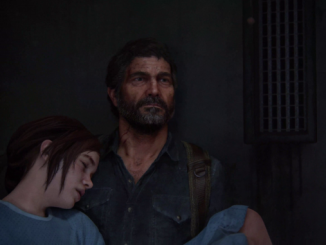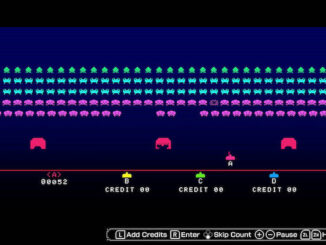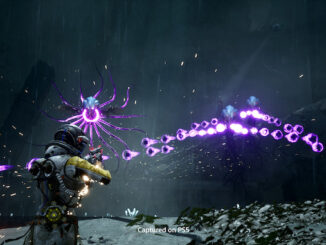Our review of Final Fantasy VII Rebirth, developed by Square Enix. Available now for PS5.
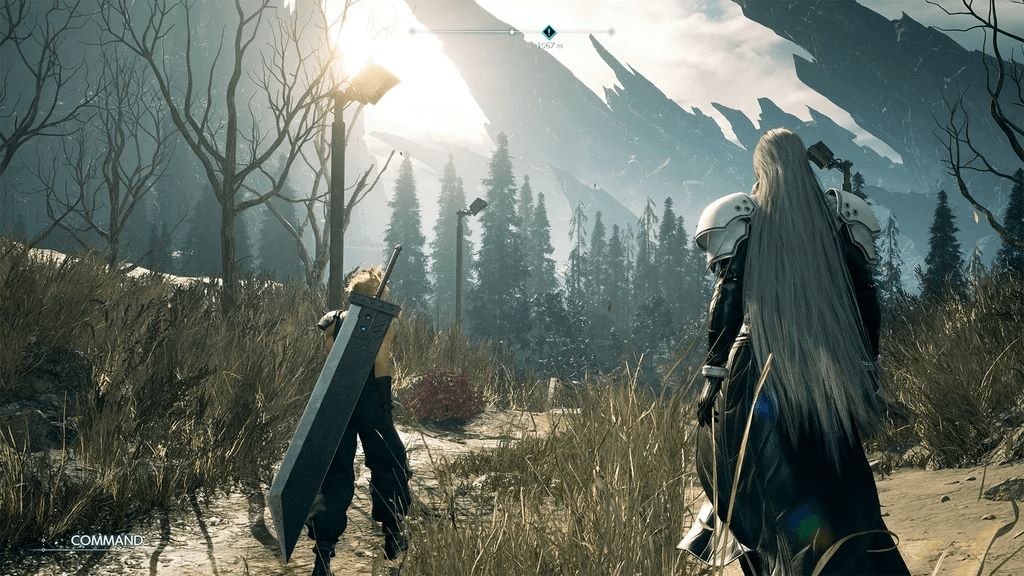
WHAT IS IT?
The second in a three-part trilogy reboot of PS1 classic Final Fantasy VII.
IS IT GOOD?
It’s a fun (if overstuffed) JRPG, but can’t match the heights of the source material.
WHO SHOULD PLAY IT?
That’s the 32-bit question, isn’t it?
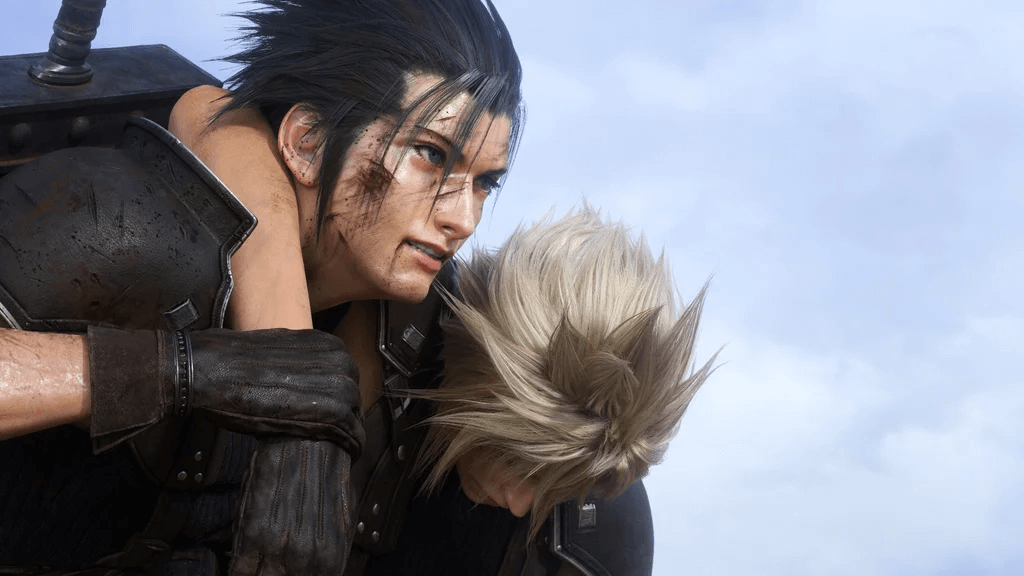
ADVENT CHILDREN
Final Fantasy VII Rebirth has a problem.
And I am not convinced, after some forty-odd hours in Rebirth and another forty hours with its 2020 predecessor FFVII Remake, that Square is going to address this problem before this three-part remake series wraps up some time in the next five years or so.
And that problem is this: who is this game for?
Surely it can’t be for diehards like me, people who grew up on Cloud Strife and Red XIII and Sephiroth, who’ve digested every piece of FFVII-adjacent media (and there’s a lot of FFVII-adjacent media). For people like me, Rebirth amounts to, at best, a partial remake of the game we know and love, awkwardly parcelling out pieces of the classic story across three games. For FFVII diehards, playing Remake and now Rebirth is an exercise in frustration: it sort of looks and sort of feels like the FFVII that defined our youth, but it keeps cutting away when it’s about to get to the good parts.
That said, this game hardly makes much more sense for newcomers. Thanks to Rebirth‘s reliance on name-drops and allusions which even I struggled to keep up with, the game clearly expects you to know and understand everything dating back to the 1997 original, even as it repeatedly fails to provide you the necessary context or reminders. It’s something I criticized in my review of the previous entry in this reboot series, FFVII Remake, which continually failed to provide necessary context or basic information to make us care about and understand its many callbacks to the original, not least through its poor handling of series nemesis Sephiroth who just, kind of, shows up, and expects us to be impressed.
That said, I am pleased to report that Final Fantasy VII Rebirth, or, if you prefer, Final Fantasy VII Sort-of Remake, Part II of III, does a much better job of fleshing out this universe, nearly justifying its weird reboot/sequel format. It’s still, y’know, weird, and awkward, and different gamers will come away dissatisfied for different reasons, but overall it’s a decently entertaining trip down sort-of memory lane.
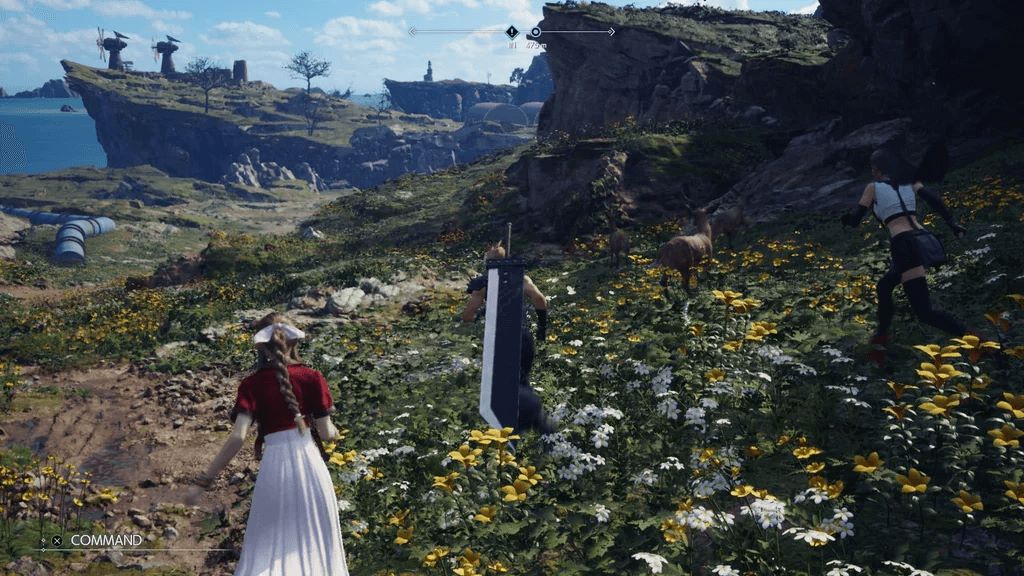
CRISIS CORE
Final Fantasy VII was a monumental achievement at its release in 1997. The brilliant ad campaign, which promised, “you can actually hear your pupils dilate”, heralded a new era of interactive fiction, with striking 3D graphics, a lush, fully orchestrated soundtrack, and sophisticated, intelligent storytelling that trusted the player to follow its dizzying path of twists, turns, and unreliable narrators, all set in a fully-fleshed out fantasy world to rival Middle-earth. There’s a moment, early in FFVII, where you step out from the game’s opening area, the mega-city of Midgar, and discover there’s an entire planet to explore, more or less at your leisure. It’s a genuinely jaw-dropping moment, surprising the many of us who assumed the whole game would be limited to Midgar.
FFVII Remake, Rebirth’s 2020 predecessor and the first in this modern “reboot” series, never takes that step. It begins and ends in the relatively bland urban environment of Midgar, and it features only the core quartet introduced in the original’s opening: Cloud, Aerith, Tifa, and Barrett. For a game that originally had nine playable characters and this world map, it was a profound disappointment.
Final Fantasy VII Rebirth goes some way to correct for the errors of its predecessor. After a quick (if not entirely coherent) opening act which jumps around a few timeframes, Cloud and co. are set free to roam the massive Grasslands area which took up the eastern continent of the original game. Soon enough, more playable characters join the fray – including a few unexpected, welcome guests – and you’re off on a globetrotting adventure that comes closer to what you remember from 27 years ago. It’s still a partial story, but it’s a good story with a much clearer throughline. It pains me that we’re going to have to wait another four to five years for the finale, but at least we’re getting somewhere.
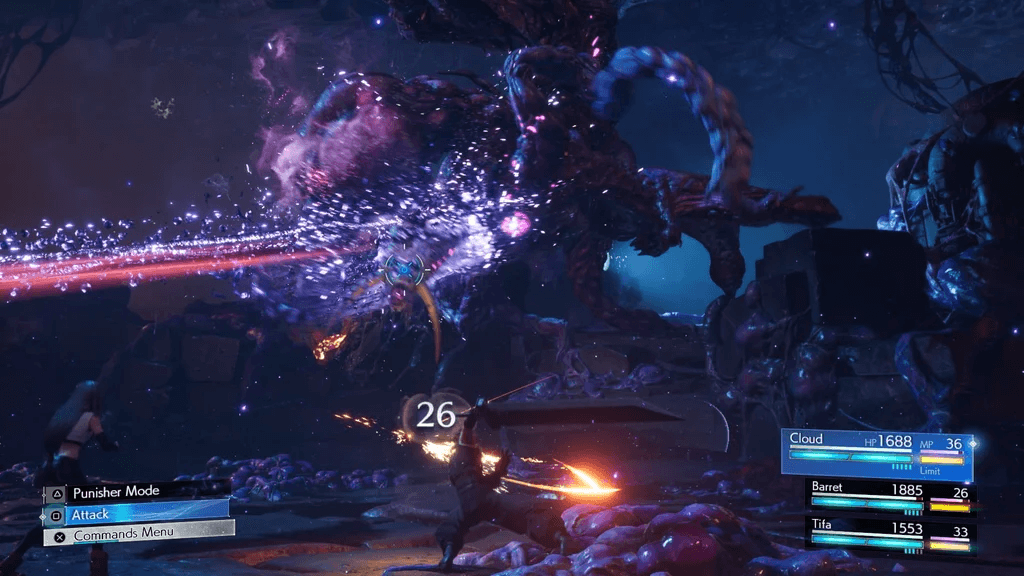
THE SPIRITS WITHIN
When we last saw Nü-Cloud and the AVALANCHE gang, they had failed to stop the evil Shinra Corporation from destroying one of the Midgar mega-city “plates”, sending it plummeting onto the impoverished population below. The AVALANCHE gang – Cloud, Tifa, Aerith, Barrett, and new friend Red XIII – then took the fight straight to Shinra headquarters, where they defeated a comically evil CEO, who was immediately replaced by his less overtly evil son. At the finale of Remake, Cloud’s ole war buddy Sephiroth just, kinda, showed up and said a bunch of quasi-incoherent things about fate and destiny, expecting us to be impressed but mostly just leaving us confused.
Meanwhile, mysterious “Whispers” – Final Fantasy‘s version of the Marvel Time Variance Authority, responsible for “pruning” variant timelines – have been haunting Cloud with dire warnings about defying fate. It’s the game’s way of winking at players that this is not, precisely, the story we remember from 1997, and that there are some compelling twists and turns in store.
Whether this will all pay off in any meaningful way will have to wait for the third and final entry. For the most part, Rebirth – in my view, wisely – keeps things more internally grounded this time out, foregrounding the main storyline (i.e., the search for Sephiroth) over the meta-narrative about fulfilling the fates foretold by a 27-year-old game. That said, many of Remake‘s major narrative hooks will land better if you recall the “alternate” version of these events from the original game – something which, frankly, isn’t so easy to do even for diehards like me.
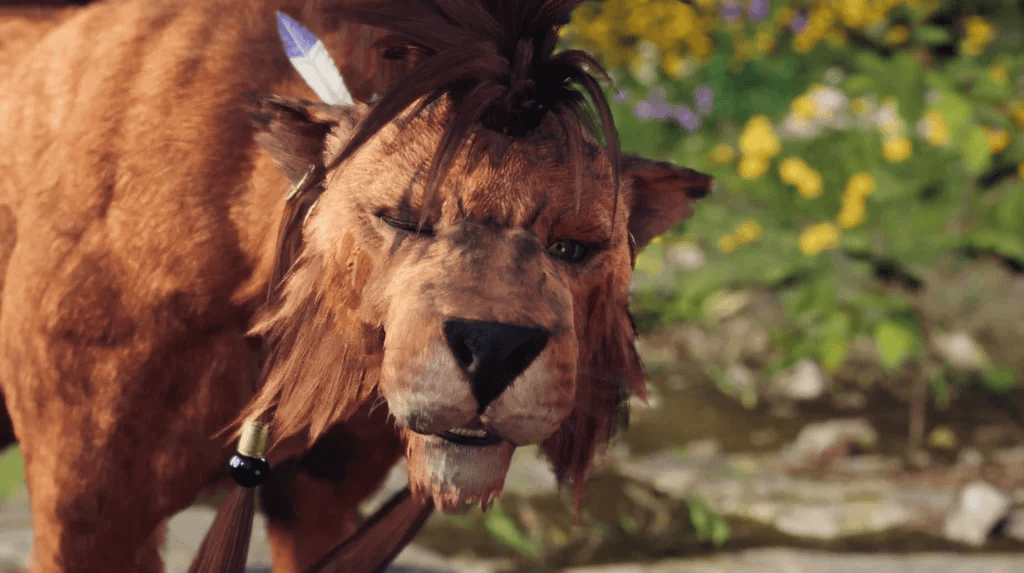
DIRGE OF CERBERUS
After the rather grim, George R.R. Martin-inspired Final Fantasy XVI of last year, FFVII Rebirth is more joyful and more fun to play overall. The combat is probably the best the series has seen, combining active third-person sword- and magic-play with menu-based spells, items, and abilities that call to mind PSP classic Crisis Core: Final Fantasy VII. The welcome return of Final Fantasy X‘s Sphere Grid upgrade system – here, referred to as the “Folio” system – gives you free reign to upgrade characters through linked skill trees, where each single upgrade branches off into several different paths with tantalizing options. That said, gameplay in Rebirth is extremely convoluted; there are poorly explained synergy attacks, summons, summon abilities, limit breaks, and about a billion other mechanics that take quite some time to get used to, and never entirely gel.
FFVII is also plagued by some pretty typical Square lousiness, including abysmal English-language voice acting (switch to the Japanese as soon as you can) and over-the-top anime-inspired cutscenes. The cardinal sin of JRPGs, terrible balancing, rears its ugly head here, with most regular enemies easily defeated, while bosses serve as artificial progression barriers which might take hours to defeat. Remake‘s very specific and annoyingly campy sense of humour also returns, relying on broad jokes that are never half as funny as the characters think they are. (At least the fatphobic humour has disappeared.)
As mentioned, the storytelling also relies far too often on players’ half-remembered experiences of the 2020 Remake and even the 1997 original. At one point early on, the main story ground to a halt so that I could watch a lengthy cutscene between two characters who I hadn’t seen before (or couldn’t remember) and who weren’t identified. I had no idea who they were or what they were talking about, but the game kept expecting me to be invested in their lengthy conversation. It’s like watching a movie which resurfaces two minor characters from hours earlier, and neglects to remind you of their names or relevance.
FFVII also suffers from Ubisoft Bloat. Yes, it’s a Square Enix game, but it has all the hallmarks of latter-day Ubisoft titles with a gazillion side quests, a gazillion more minigames – there are at least three distinct rhythm games, only one of which (the piano!) is any good – and an open world HUD with far too many coloured arrows pointing in far too many directions.
Some of the side activities are fun – the aforementioned piano, the in-universe card game Queen’s Blood – but too many are time-fillers, adding needless length to an already lengthy game. While I may have faulted Remake for being too linear, Rebirth overcorrects, giving you way too many things to do in way too many places at any given time. And you usually can’t skip over them, because of the valuable rewards that help to level up your characters and steel you for the toughest boss fights.
And yet! FFVII is one of those games that, production values, gameplay, moment-to-moment storytelling, is still a lot of fun to spend time in. For every lame fetch quest or Far Cry-style tower activation, there are just as many epic set-pieces and interesting story beats that make it worth pushing on, even when it verges on becoming a slog.
Some lovely nods and winks to the original suggest that ultimately this is probably more for longtime fans than newcomers, even if those longtime fans will also come away feeling a bit frustrated. Perhaps one day, when the COMPLEAT FINAL FANTASY SEVEN REMAKE HD REMIX 2.0 gets released for PS6, this reboot will make more sense. As it is, come for the chocobos, stay for the buster swords, try not to think too much.
***
Final score: VIII out of X unreliable narrators.
Visit the official website for Final Fantasy VII Rebirth here.

